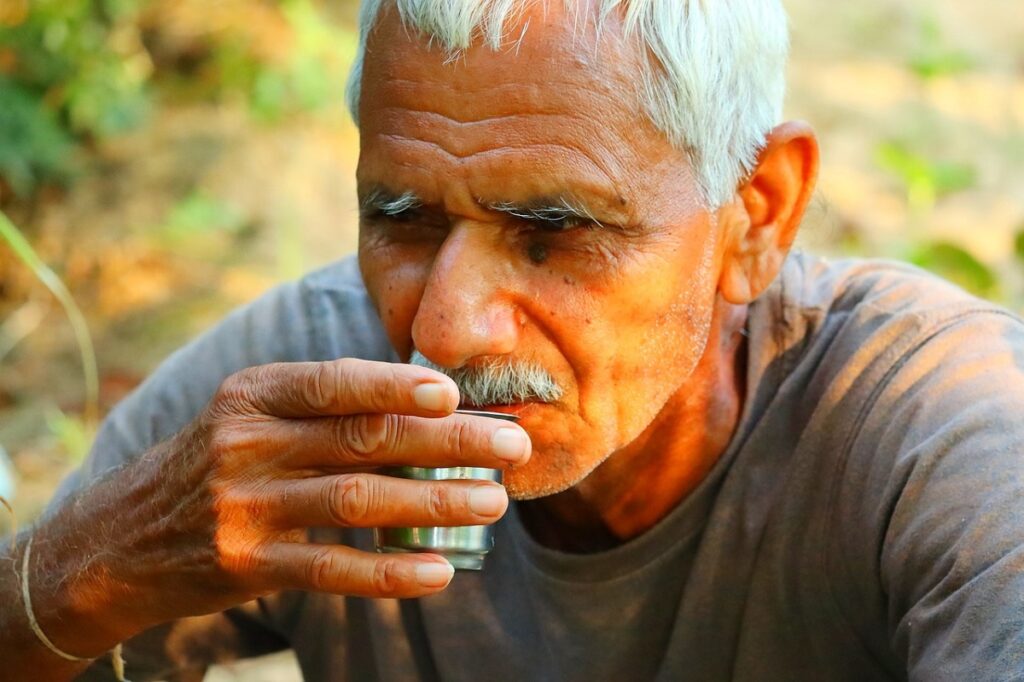Coffee is a beloved beverage million of people enjoy worldwide, but have you ever stopped to think about its history? The history of coffee is a fascinating tale that spans centuries and continents. From its humble beginnings in the highlands of Ethiopia to its current status as a global commodity, coffee has had a rich and colorful past.
In this article, we’ll explore the history of coffee and trace its evolution from a simple plant to the complex drink we know today. So please grab a cup of your favorite brew and join us on a journey through the history of coffee.
Tracing the Roots and History of Coffee
The story of coffee begins in the highlands of Ethiopia, where legend has it that a goat herder named Kaldi discovered the coffee plant. According to the legend, Kaldi noticed that his goats became more energetic after eating berries from a particular tree. Intrigued, Kaldi tried the berries himself and experienced the same burst of energy.

News of this magical berry spread, and soon the coffee plant was being cultivated in the region. From Ethiopia, coffee spread to the Arab world. The Arab world was also responsible for developing the process of roasting and brewing coffee, as well as the first coffeehouses.
Coffee began to spread beyond the Arab world in the 16th century. It wasn’t long before it became a global phenomenon. In the 17th and 18th centuries, coffee was introduced to Europe. It quickly became popular among the intellectuals and artists of the time. During this time, coffee plantations began to spring up in the Americas, particularly in South and Central America.
Coffee has had a colorful and tumultuous history, with wars and boycotts being fought over the coveted beans. In the 19th and 20th centuries, coffee became a major commodity, and it remains so.
Today, coffee grows in countries worldwide, with the most prominent producers being Brazil, Vietnam, Colombia, and Indonesia. There are countless ways to enjoy coffee, from simple black coffee to elaborate lattes and cappuccinos. No matter how people consume coffee, there’s no denying the enduring popularity of this tasty and energizing drink.
The History of Coffee from Ethiopia to the World
Coffee has come a long way since its humble beginnings in the highlands of Ethiopia. Today, people consume coffee worldwide, becoming a multi-billion dollar industry.
One of the things that makes coffee so popular is its versatility. It can be enjoyed hot or cold, sweetened or unsweetened, and with various flavors and additives. There are countless ways to enjoy coffee, and each person has unique preferences.
In addition to its taste, coffee is also prized for its ability to provide a burst of energy. The active ingredient in coffee is caffeine, a stimulant that can help to increase alertness and concentration. This is one of the reasons why coffee is so popular among students, office workers, and anyone who needs to stay awake and alert.
Coffee has also played a role in social and cultural events throughout history. In the early days of coffee, coffeehouses were places where people gathered to drink coffee, socialize, and engage in intellectual discussions. Today, coffee shops are still popular places to meet, relax, and catch up with friends.
Coffee has also had a political history. In the early 20th century, there was a boycott of coffee from countries in South and Central America, where many coffee plantations were located. The boycott responded to the poor working conditions and low wages on these plantations. In recent years, there has also been a movement to promote fair-trade coffee, which is ethically and sustainably coffee production.

Despite its checkered past, coffee remains one of the world’s most popular and beloved beverages. Whether you enjoy a simple cup of black coffee or a fancy latte, there’s no denying the appeal of this delicious and energizing drink.
Conclusion
In conclusion, coffee is a drink with a rich and fascinating history. From its humble origins in the highlands of Ethiopia to its current status as a global commodity, coffee has come across a remarkable journey. Today, billions of people consume coffee worldwide, and have become a multi-billion dollar industry.
Whether you’re a coffee aficionado or just someone who enjoys the occasional cup, there’s no denying the appeal of this delicious and energizing drink. So the next time you enjoy a cup of coffee, take a moment to appreciate this beloved beverage’s history and cultural significance.
Finally, it’s essential to consider where your coffee comes from and how it grows. Supporting fair trade and ethical coffee practices is a small but meaningful way to contribute to a more sustainable and equitable world. So why not try switching to fair trade coffee and doing your part to support a better future?
References:
If you’d like to learn more about the history of coffee, here are a few helpful resources:
- The National Coffee Association has an informative page on the history of coffee, including details on the discovery of coffee and its spread throughout the world.
- The Specialty Coffee Association also has a brief overview of the history of coffee and information on modern coffee production and consumption.
- The International Coffee Organization has a detailed timeline of the history of coffee, including information on key events and figures in the development of the coffee industry.
- The Coffee Museum in Paris has a website with information on the history of coffee, including its cultural and social significance.


